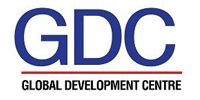FAQ
A. Global Development Centre (GDC) is a unique platform of Research and Information Systems (RIS) for developing countries. RIS is a New Delhi based autonomous policy research institute specialized in issues related to international economic development, trade, investment and technology. Affiliated to the Ministry of External Affairs, Government of India, RIS promotes South-South Cooperation and collaborates with developing countries in multilateral negotiations in various forms.
GDC is promoting development programmes/flagship missions advocated by India & other developing countries for their possible replication/adoption among its peer countries in the Global South. It aims to facilitate exchange of experiences and best practices among developing countries. GDC plans to create a global database of good practices and offers a platform for all developing countries to showcase their innovation and success stories.
GDC will contribute towards evolving an alternative development paradigm anchored on the virtues of inclusiveness and sustainability.
A. India’s development experiences incubating systemic changes in economic transformation, improvements in the ease of doing business and sectoral and institutional connections alongside traditional approaches to new institutional mechanisms have attracted wide global attention.
The government departments and public institutions are developing new policies and programmes for implementation. In such a scenario, a simultaneous effort is needed to analyse the implications of new sectoral trajectories having macro level development perspective known to national and global audiences.
This effort requires a new ecosystem of institutions including Civil Society Organisations (CSOs), to establish a linkage between private and public actors in different sectors in the global space. Global Development Centre will leverage such a platform for exchange of knowledge and development experiences through joint research studies and symposia. The Centre will be aligned with a spectrum of partnering institutions like government bodies, academia, CSOs, parastatal agencies etc. The core competences and specific sectoral strengths of the partnering institutions will foster the projection of national experience to local and global actors.
A. Three important factors underline the necessity for such a Centre.
Development process in any country today can no longer be seen through an economic lens alone. It also has relevance in social, political, cultural and institutional factors for determining the dynamics of holistic development. GDC will understand and articulate development process within a macro framework consciously and decisively crossing disciplinary boundaries.
Development has to be a result of cooperation among nations. The emphasis on SGDs will be a clear pointer to such a realization. Thus GDC will look through the lens going beyond regional economic growth to developing a global perspective in equity, sustainability and inclusivity. The development road map would be guided by both its domestic and external policies.
GDC will adopt an inherent multi-disciplinary, multi-functional approach and embrace pragmatic and flexible management process.
A. GDC concentrates on knowledge gathering and dissemination, facilitating realisation of Agenda 2030.
Important SDGs primarily focussed under GDC are:
Sustainable Agriculture (SDG-2), Health (SDG-3); Capacity Building, Skill Development, Youth and Education (SDG-4); Gender Equality (SDG-5); and in addition, some crosscutting themes covering Development Cooperation (SDG-17); and digital connect, quality infrastructure, climate resilience and building institutions for development.
Institutional outreach of GDC:
• GDC envisions as a bona fide platform of emerging practices, concepts and narratives of South-South Cooperation and Triangular Cooperation. It is also establishing a new ecosystem of institutions consisting of governments, Think-Tanks, civil society organisations and the private sector to form coalitions on global best practices. Therefore, GDC is pursuing meaningful partnerships with international/national agencies are being pursued.
• In order to amplify, as part of GDC’s institutional outreach and bring on board subject experts and policy makers, GDC conducts high level capacity building programmes for officials and practitioners from other developing countries. GDC is also connecting with prominent global governance forums for showcasing its achievements and widen partnerships for greater impact. It has prominently participated at the Paris Peace Forum and Global Goals Week, 2021-22 at Dubai.
• GDC also promotes localisation of SDGs and encourages cross-learning among Indian States on multifaceted development initiatives and experiences by connecting different stakeholders like government, academia, think-tanks, civil society organisations, etc.
• GDC organizes academic and policy dialogues in the form of workshops and conferences; and brainstorming sessions and public seminars with partner agencies of other developing countries from time to time.
A. Africa, Asia, Pacific Island Countries (PICs) and Small Island Developing States (SIDS) are priority regions for GDC.
GDC target countries in Africa include Ethiopia, Kenya, Madagascar, Mozambique, Nigeria, Rwanda, Tanzania, Uganda, South Sudan, Malawi and Zambia. In Asia, GDC activities cover Afghanistan, Bangladesh, Bhutan, Maldives, Myanmar and Nepal.
A.
Broad Theme |
Sub-Themes |
| Agriculture and Nutrition |
Strengthening systems for sustainable agricultural production and processing and leveraging promotional platforms Sustainable farm income, Productivity, Agricultural Insurance, Soil Management, Quality Seeds, Livelihood, Water, Food Security, Nutrition, Healthy Food Systems, Agriculture Credit, Cooperatives, Supply Chains etc. |
|---|---|
| Health |
Enhancing universal access to quality health services Affordable Medicine, Traditional Medicine, Primary Healthcare, Sanitation, Generic Drugs, Biotechnology, Biopharmaceuticals, Vaccines, Pandemic Management etc. |
STI & Digital Technologies |
Foster technical collaborations to harness technology for accelerating inclusive development Digital and technological solutions for SDGs (digital public goods, Aadhaar enabled services- towards financial inclusion and direct benefit transfers, Digital Payment Solutions and FinTech, Vaccination Platforms - Co-WIN) |
Development Practices and New Frameworks |
Conducting deeper studies, expanding base for relevant on developmental challenges evolving in different sectors Empirical Research on Development Strategies & Interventions, Repository of Case Studies & Best Practices, Multidisciplinary Approaches towards Analysis of Alternative Development Models with special focus on Climate Change, Women’s Economic Empowerment, Gender Development etc. |
A. • Evolving a new development paradigm
• Embracing plurality of development approaches and experiences
• Creation of Global Public Goods
• Sharing of India’s development experience in global south
A. • To promote collective efforts towards achievement of SDGs
• To create knowledge assimilation and dissemination
• To facilitate the realisation of Agenda 2030
• To advocate equity, sustainability and inclusive development

.jpg)
